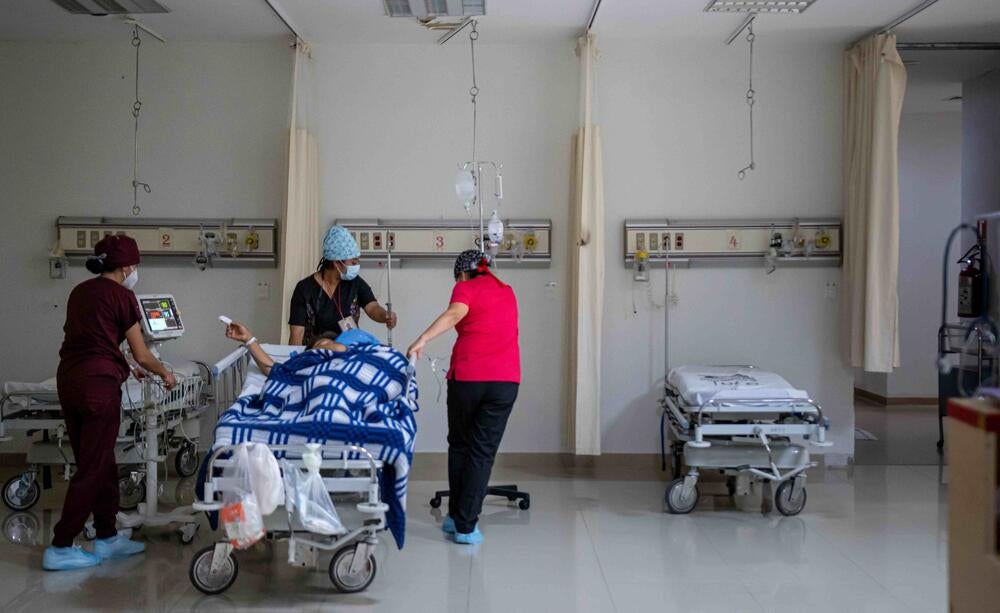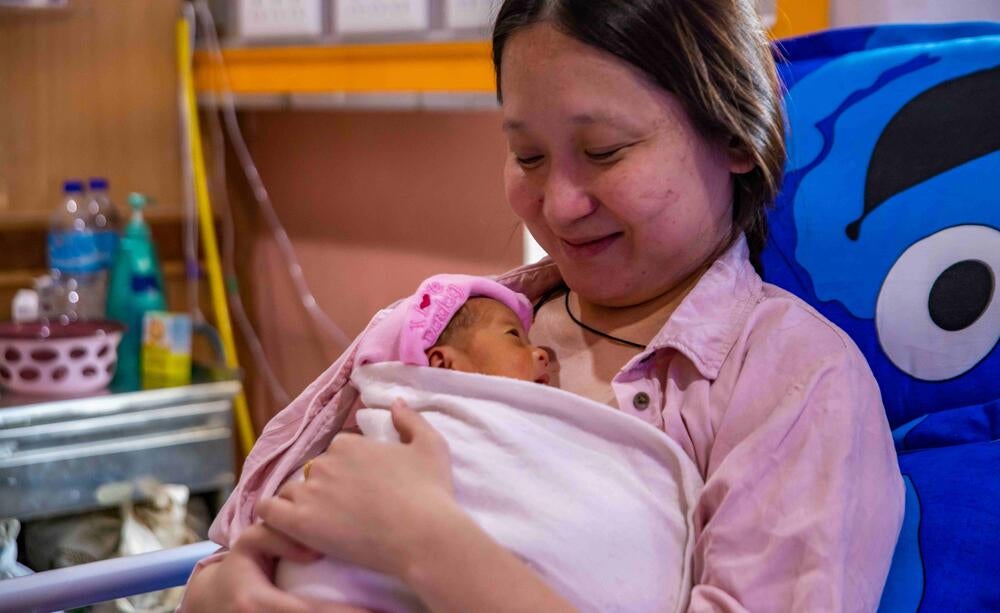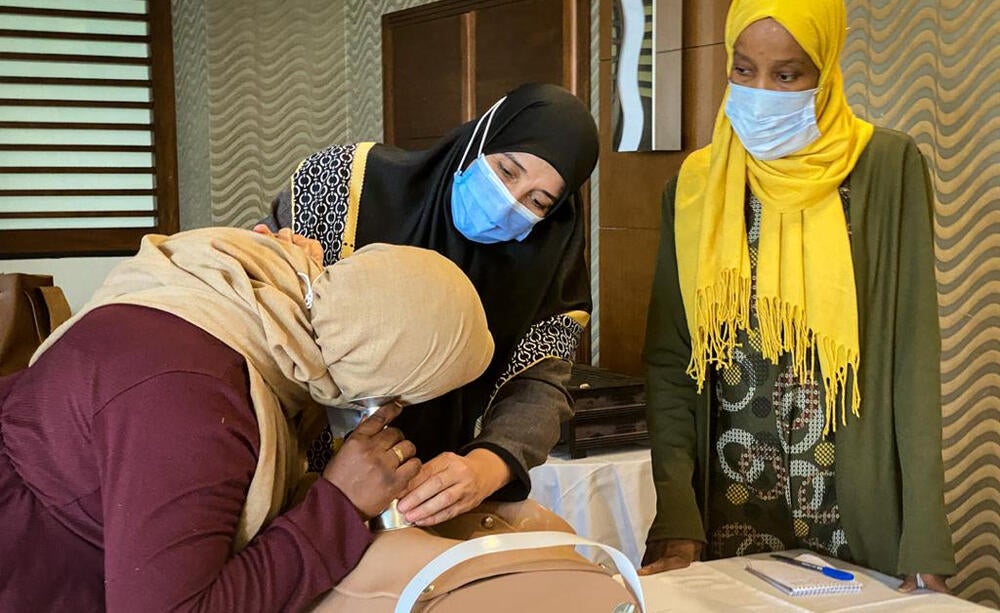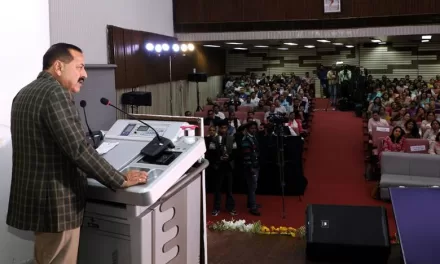UNITED NATIONS, New York – “My great-grandmother was a midwife,” said Erika Martinez, 23. “She was one of my biggest inspirations.”
Ms. Martinez is a midwifery student in Tulancingo, Mexico, working in an underserved community. “There is a health care house, but there are no permanent staff,” she explained. “In my community, there are many youth pregnancies, and there are no dedicated health staff who could care for women or take care of teenagers.”

This shortage is partly due to a widely held misconception that midwifery is an antiquated profession, she indicated. “I met with doctors and nurses who questioned me: Why was I studying this midwife career? They didn’t see room for that.”
Thursday is the International Day of the Midwife, a moment to recognize the enormous contributions of midwives to health care around the world.
“Not only do their capable hands bring new life into the world, but they are also champions of sexual and reproductive health and rights, providing voluntary contraception and other essential services, while supporting childbearing women emotionally,” said Dr. Natalia Kanem, UNFPA’s Executive Director, in her statement marking the day.
Yet continued lack of recognition hinders not only the success of midwives but also the health and well-being of whole societies. “We will not achieve universal health coverage without them,” said Dr. Kanem, “or realize our aspirations to reduce maternal and newborn deaths, as agreed in the Sustainable Development Goals.”
Midwives: Overworked, underrecognized
The 2021 State of World’s Midwifery report found that investing in universal access to quality midwifery care could, by 2035, save 4.3 million lives every year by preventing maternal and neonatal deaths and stillbirths.
UNFPA’s global midwifery programme, run in collaboration with the International Confederation of Midwives, is currently operating in over 120 countries to bring midwifery skills up to international standards.
These efforts are having a major impact. In Zambia, for instance, the number of births assisted by a skilled attendant has more than doubled between 2002 and 2018. It is no coincidence that the maternal mortality rate dropped nearly 300 percent in the same period.
But much more needs to be done to integrate midwifery into health systems, including improving the status of midwives.
“Health systems almost everywhere need to do more to support midwives and guarantee respectful, decent working conditions. Amid an acute shortage of midwives, many are overworked and underpaid,” said Dr. Kanem.
Pandemic responders
When midwives are properly trained and supported, their contributions are undeniable.
This was made clearer than ever at the outset of the global COVID-19 pandemic, said Faiza Benbaha, chief midwife at the Marrakech University Hospital in Morocco. “The COVID-19 care services started to take up more space in health establishments, up to the delivery rooms, and the emergency rooms were filling up… We were sometimes mobilized for hours to take care of pregnant patients, especially emergency cases suffering from fever and breathing difficulties due to the disease.”
Fortunately, the training she and other midwives had received helped them organize their response. “We had to carry on ensuring the safety of mothers and newborns while managing the epidemic,” said Rachida El Mahjoubi, head midwife at Mohamed V Hospital in Tangier.
Stepping up for the next generation
Midwives everywhere are stepping up for women and newborns.
“We had high maternal mortality rates in Bhutan,” said Deki Pem, the deputy dean of the Nursing and Midwifery Department at Khesar Gyalpo University of Medical Sciences of Bhutan. “The government took the initiative and prioritized reducing maternal mortality and morbidity because many women and children were dying from preventable causes.” She began working with UNFPA to adapt midwifery training programmes for local health personnel.

“We want to have a midwife champion in every hospital or health facility,” she said.
Hakima, 57, a midwife in Tripoli’s University Hospital in Libya, said that midwives are doing the same in her country – increasing their skills to fill major gaps in the health system.

“After the war broke out, the greatest challenge was to find trained midwives and nurses as the expat workforce left the country, leaving behind inadequate numbers and capacities to meet the emerging needs,” Hakima recalled.
With training, however, the midwives are providing services and information well beyond what they could have before. In addition to serving the health needs of their clients, they are correcting dangerous misconceptions, such as the idea that women and newborns do not require skilled attendants during and after birth, and the idea that women and girls should have no decision-making power. They are also passing these skills on to younger professionals entering the field.
“These trainings have helped us to learn best practices before, during and after the delivery… With our improved capacities, we are not only busting myths and achieving better results, but also training the younger generation of midwives and nurses coming into the profession.”
Pari Lotfipour, a midwife of more than 40 years, says she takes enormous joy in her work. She has become a role model for younger midwives, and her own passion for the work is undimmed. “As someone who started my career with love, I still have enough love to deliver babies for another 20 years,” she said.












